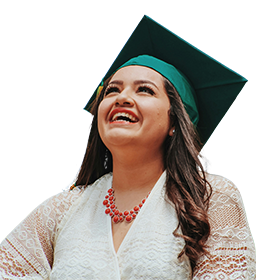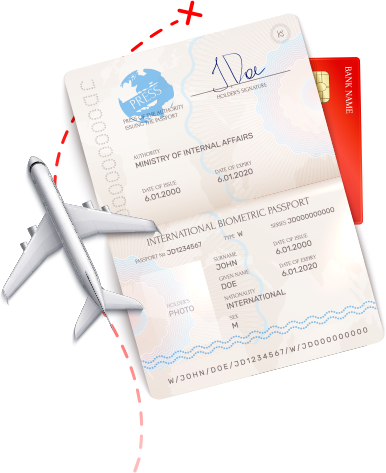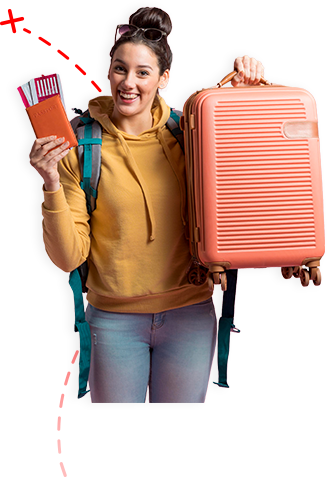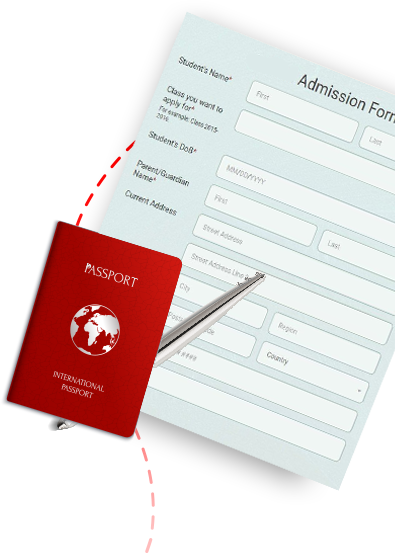- Study in Australia (Overview)
- Choose Your Study Area
- Plan Your Budget
- Prepare For VISA Application
- Get ready To Study


Offer letter in just
48 Hours*
Plan Your Move
Whatever your career or learning goal, there’s a course to help you get there
Your guide to visas
What can you bring to Australia?
Language testing organisations
Bringing your family
Preparing to travel
Overseas Student Health Cover (OSHC)
How to apply for your visa
Your first week in Australia
Your guide to visas
For students coming to Australia to study, the most common visa is the Student visa (subclass 500). After completing studies in Australia, eligible students can apply for a Temporary Graduate visa (subclass 485) to live and work in Australia. Alternatively, short-term or temporary visas may better suit your study experience.
Student visa (subclass 500)
Types of study covered
The student (subclass 500) visa allows you to study the following study types:
- higher education
- Vocational and Education Training (VET)
- pathway courses
- English Language Intensive Courses for Overseas Students (ELICOS)
- primary and secondary school
- secondary school exchange programs
- postgraduate research
- non-award courses (such as Study Abroad and Exchange semesters), and
- international students sponsored by the Australian Government’s Department of Foreign Affairs (DFAT) or Defence.
You will need to enrol in a course at an Australian education or training provider first and then apply for a student visa after you have been issued a confirmation of enrolment (CoE) from the provider. For more information on applying for courses, visit the how to apply to study page.
Fees and processing time
In Australia, student visa fees are from AUD$1,600 per visa application* unless you are exempt. Australian student visa processing times vary from person to person. Visa processing times are available on the Department of Home Affairs website. You can also get tips on how to improve your processing time.
*Prices are correct at July 2024.
Student visa work restrictions
The number of work hours allowed during study terms and semesters is capped at 48 hours per fortnight. If you fail to comply with this visa condition, you may have your student visa cancelled.
Students who have already started their Master degree by research or Doctoral degree have no work hours limit.
Check the Visa Entitlement Verification Online system (VEVO) to see the work conditions that apply to you.
International students are protected by Australia’s workplace laws. Find out more on our Working in Australia page.
Other Student visa conditions
There are some other important visa conditions that you need to take note of, including that you must:
- notify your education or training provider of your residential address within 7 days of arriving in Australia
- meet your course requirements, remain enrolled and maintain satisfactory attendance and course progression – tell your provider if you are sick or have any other issues that may affect your attendance
- maintain adequate health insurance for visa holders for the whole of your stay in Australia, and
- not over-stay your visa period in Australia.
You can check your visa status and full list of conditions any time at the Department of Home Affairs Visa Entitlement Verification Online system (VEVO).
‘Course packaging’ on a Student visa (subclass 500)
You can apply to study two or more courses on your Student visa (subclass 500) where there is clear progression from one course to another. This is known as course packaging.
You will need a Confirmation of Enrolment (CoE) for each course you plan to take. The final course that you will undertake as part of your package will be your main (or ‘principal’) course of study.
For your visa application, the Department of Home Affairs will use your main course of study to work out what:
- evidence of finances you need to provide
- English language skills are required.
If your visa application includes a package of courses, course gaps must be less than two calendar months. This gap can be longer (three to four months) if:
- the first course finishes at the end of the Australian academic year (November), and
- the following course starts at the beginning of the next academic year (February).
Standard visa grant periods apply to packaged courses. To find about more about the most popular pathway (or packaged study) options, Call us now.
Changes to onshore applications
From 1 July 2024, holders of certain visas, including Visitor, Temporary Graduate, and Maritime Crew visas, can no longer apply for Student visas while in Australia.
Student visa applicants with a genuine intention to pursue studies in Australia will still be able to apply for a Student visa from offshore (outside of Australia).
Temporary Graduate (subclass 485) visa
Eligibility
To be eligible for a Temporary Graduate (subclass 485) visa you must:
- Be under 35 years of age or under at the time of application. Exceptions apply.
- Have held a Student (subclass 500) visa in the last six months.
- Provide evidence you have applied for an AFP check when you apply.
- Provide evidence of the required level of English language with the application.
Length of stay and work rights
The length of your stay on a Temporary Graduate visa (subclass 485) varies depending on the course you studied and the visa stream you apply for.
There are three streams:
1. Post-Vocational Education Work stream (former Graduate Work stream)
This visa stream is for international students who have recently graduated with qualifications that are relevant to specific occupations Australia needs.
- Post-Vocational Education Work stream holders can stay in Australia for up to 18 months. Hong Kong and British National Overseas passport holders may stay for 5 years.
- You must be under 35 years of age or under when you apply. Hong Kong and British National Overseas passport holders must be aged under 50 years when they apply.
- You must hold a qualification relevant to your nominated occupation on the skilled occupation list.
- You must meet the Australian study requirement with an associate degree, diploma or trade qualification only.
2. Post-Higher Education Work stream (former Post-Study Work stream)
This visa stream is for international students who have recently graduated with a degree from an Australian education provider.
- You must be under 35 years of age or under when you apply. If you hold a Hong Kong or British National Overseas passport or are using a Masters (research) or Doctoral Degree to meet the Australian study requirement, you must be under the age of 50 when you apply.
- You need a recent degree in a CRICOS-registered course.
- You must meet the Australian study requirement with a degree level qualification or higher.
Stay periods:
- You can stay usually between 2 and 3 years, depending on your qualification.
- Hong Kong and British National Overseas passport holders may stay for 5 years.
- Indian nationals have the following stay periods as agreed in the Australia-India Economic Cooperation and Trade Agreement:
- Bachelor degree (including honours) – up to 2 years
- Bachelor degree (with first class honours in STEM, including ICT) – up to 3 years
- Masters (coursework, extended and research) – up to 3 years
- Doctoral degrees (PhD) – up to 4 years.
3. Second Post-Higher Education Work stream (former Second Post-Study Work stream)
This visa stream is for Temporary Graduates holding a Post-Higher Education Work, Post-Study Work or Replacement visa with a degree from an Australian institution located in a regional area.
You must be under 35 years of age or under when you apply. If you hold a Hong Kong or British National Overseas passport or are using a Masters (research) or Doctoral Degree to meet the Australian study requirement, you must be under the age of 50 when you apply.
You can stay between 1 and 2 years depending on:
- the regional location of the education provider that you graduated from that led to the grant of your first Temporary Graduate visa
- the regional area that you live in as the holder of your Temporary Graduate visa in the Post-Higher Education Work, Post-Study Work or Replacement stream.
Which stream should I apply for?
The qualification you use to meet the Australian study requirement determines the stream you can apply for.
- If you hold an associate degree, diploma or trade qualification, you should apply for the Post-Vocational Education Work stream. The qualification you use must be closely related to your nominated occupation on the Medium and Long-term Strategic Skills List (MLTSSL).
- If your qualification is degree level or higher, you should apply for the Post-Higher Education Work stream.
How to apply
Visit the Home Affairs website for a step-by-step guide on how to apply online using ImmiAccount.
Other types of visas
Visitor visas (subclass 600), Electronic Travel Authority (subclass 601) and eVisitor (subclass 651) visas
A Visitor visa allows you to study for a maximum of three months. This visa can be used by visitors wishing to take a 10-week English Intensive Language Course for Overseas Students (ELICOS).
To be eligible for this visa you must:
- meet health and character requirements, and
- provide proof that you have sufficient money to support yourself during your stay in Australia.
Read more about visitor visas on the Department of Home Affairs website.
Training visa (subclass 407)
The training visa is a temporary visa that allows you to take part in workplace-based training in Australia for up to two years.
With this visa, you can participate in occupational training activities to improve your skills for your current job, area of tertiary study or field of expertise, or in a professional development training program in Australia.
For more information on this visa visit the Department of Home Affairs website.
Work and Holiday Visa (subclass 462) and the Working Holiday Visa (subclass 417)
The Working Holiday Maker (WHM) Program has two visa options: the Work and Holiday visa (subclass 462) and the Working Holiday visa (subclass 417)
Visa holders may work and undertake short-term study (up to four months), such as English language studies, during their holiday in Australia.
To be eligible you must:
- hold a valid passport from an eligible country
- be aged 18 to 30 or 35 years old (depending on your passport country) at the time of visa application
- not be accompanied by dependent children
- meet health and character requirements, and
- have sufficient funds for airfares and to support your stay in Australia.
Read more about the Working Holiday Maker Program at the Department of Home Affairs website.
More visa options
Explore your visa options for studying in Australia at the Department of Home Affairs website.
If you want professional immigration assistance with your visa application, check the OMARA Register to find a registered migration agent or find out more about who can provide immigration assistance.
What can you bring to Australia?
Customs (border control)
You need to know what you can and cannot bring into Australia before you arrive to avoid penalties.
There are many items that you must declare on your Incoming Passenger Arrival Card when you land in Australia, including:
- all food, plant material and animal items
- firearms, weapons and ammunition
- currency amounts of A$10,000 (or foreign equivalent), and
- some medicines.
If unsure, declare your goods or ask an Australian Border Force officer for advice. Declaring goods does not necessarily mean your baggage will be examined.
You should be aware that it is routine for Australian Border Force officers to ask travellers questions at any time. Trained dogs may also be used to detect illegal drugs or prohibited imports.
It is illegal to carry (or use) drugs, including marijuana, cannabis, heroin, cocaine and amphetamines, in and out of Australia.
Biosecurity (plant and food materials)
You cannot bring fresh fruit and vegetables, meat, poultry, pork, eggs, dairy products, live plants or seeds to Australia. These products could introduce serious pests and diseases into Australia, devastating our unique environment.
By law, you must declare any goods listed on your incoming passenger card, including certain food, plant material and animal products.
You can be penalised if you don’t declare goods or provide an incorrect declaration. You could:
- receive a fine of up to A$5,500.
- have your visa cancelled.
- or be refused entry into Australia and held in immigration detention pending departure from Australia.
If you are unsure of an item, declare it, or don’t bring it.
A complete list of what you can and can’t bring to Australia is provided on the Australian Border Force website.
Language testing organisations
There are usually English language requirements for studying or working in Australia.
You will need to check the type of visa that you want to apply for at the Australian Government’s Department of Home Affairs website. The page for each visa will tell you what level of English you need and what evidence you must provide.
One of the requirements of the Student visa (subclass 500) is to provide proof of your English language ability.
To prove your English language level, you will need to provide one of the following:
- Proof that you are a citizen of (and hold a valid passport issued by) the United Kingdom*, the United States of America, Canada, New Zealand or the Republic of Ireland. *British National (Overseas) passports are not accepted.
- A certificate of results from one of the approved English language tests listed below.
Approved English language tests
The Australian Government’s Department of Home Affairs accepts scores from the following tests, undertaken at a secure test centre, for English language visa requirements:
- International English Language Testing System (IELTS), including One Skill Retake (OSR)*
- Pearson Test of English (PTE)
- Cambridge English (CAE) (also known as C1 Advanced)
- Occupational English Test (OET), a test developed for health professionals
- Test of English as a Foreign Language (TOEFL iBT)^
*From 14 December 2022, IELTS One Skill Retake (OSR) will be available for certain test takers. OSR allows you to retake one of the four test components in either reading, writing, speaking or listening (once only).
^TOEFL iBT tests taken between July 26th, 2023, and May 4th, 2024, are not valid. Tests taken before July 26th, 2023, remain valid for two years.
For Australian visa purposes, the Department of Home Affairs will accept IELTS test results that include OSR, except for visa subclasses 476, 482, and 485, which need scores from a single sitting or attempt.
See what evidence you need to provide for:
Online (at-home) English language tests
Some test providers offer tests that you can take at home or online, such as TOEFL iBT – Special Home Edition, OET@Home, IELTS Indicator, and IELTS Online. However, the Australian Government’s Department of Home Affairs does not accept scores from these tests or other ‘at-home’ or ‘online’ tests.
Bringing your family
Thousands of international students bring family members with them to Australia each year. It’s an excellent way for your family to learn about other cultures, explore a new country, learn in diverse classrooms, develop their language skills, and build lifelong connections.
You can include family members when you lodge your student visa application, including:
- your partner (spouse, de facto or same-sex partner)
- your dependent child/children under 18 years of age and, or
- your partner’s dependent child/children under 18 years of age.
You must provide evidence showing your relationship with your dependent family members. This may include marriage certificates and birth certificates.
Your family members will also need to provide evidence that they meet specific health and character requirements. This may include medical examinations and police clearance certificates.
You will also need to prove that you can financially support your family when you are in Australia.
More information on how to include your family in your student visa application is available on the Home Affairs website.
Bringing your partner
A spouse or de facto partner can be added as a secondary applicant to a student visa application.
Couples may need to provide evidence to support the claimed relationship, including a marriage certificate or proof of living together. Spouses and de facto partners must also satisfy the Department of Home Affairs that they are genuine temporary entrants.
Your partner may have different working rights than you. For more information on visa conditions, check the visa grant letter or use the Visa Entitlement Verification Online system (VEVO).
Bringing your child/children
The Australian Government will only grant a student visa to your child if they are under 18 years of age when a decision is made on your visa application. They must apply for their own visa if they are 18 or older.
You will need to pay for any dependent children to go to either a public or private school in Australia. The starting age for schools in Australia is around five years, but the exact start can differ in each state and territory.
For children under the age of five years, you can consider childcare or kindergarten services. Some Australian education providers, including universities, have childcare facilities on or near campus. There are also private and not-for-profit childcare centres located in all cities.
It’s a good idea for all childcare services to research the options and costs before you arrive. You should look for the type of care that suits you and your child best and a service that is in a convenient location (e.g. near to campus or where you plan to live). Making childcare inquiries sooner than later is also a good idea, as there is often a waiting list. You can add your child’s name to multiple waiting lists if you are unsure about your service needs or exact location in Australia.
For more information on your child’s visa conditions, check the visa grant letter or use the VEVO system.
Bringing your parent (if you are under 18 years of age)
If you are a student under 18, an adult can come to Australia with you to provide care and support. They must be:
- a parent, custodian or relative who is 21 years or older
- have enough money to support themselves and you during their stay, and
- able to provide you with accommodation, welfare and other support.
Your parent will have to apply for a Student Guardian visa. Your parent or guardian:
- cannot work in Australia.
- must live with you.
- must satisfy the Department of Home Affairs requirement that they are genuine temporary entrants.
Bringing your family at a later time
You must declare family members when you lodge your student visa application, even if they do not plan to travel with you to Australia immediately. If you don’t declare them on your student visa application, they will not be eligible for a student visa to join you in Australia at any stage.
Your family member(s) can apply as a subsequent entrant later, separate from your application, in ImmiAccount.
If a person became your family member after you lodged your application, and before a final decision on your visa application, you must inform the Department of Home Affairs of the change in circumstances.
Support for you and your family
Your education provider will offer support services. You should contact your provider’s student services for more information regarding accommodation, childcare and schools. Some education providers also offer childcare and English language classes for your family.
Preparing for your travels
Pre-departure Checklist
This pre-departure checklist will help you prepare for your travels to Australia.
1. Passport
Check that your passport is valid for at least six months prior to your arrival in Australia. It is also a good idea to make a copy of your passport and leave it with a family member in case of an emergency.
2. Visa
Make sure you have a valid visa for entering and studying in Australia well before your departure date and that you have all your visa documentation (including Confirmation of Enrolment, or eCoE) with you on your flight.
3. Flights
Be sure to book your flight to arrive in Australia with plenty of time to settle into your new city and campus before your course starts. Only book your flight once you have been granted a student visa.
Check out our helpful tips for booking your flight to Australia.
4. Travel insurance
In addition to your Overseas Student Health Cover (OSHC), you should also consider travel insurance, which covers things such as cancelled flights and some medical costs. Talk to your education or travel agent for more information and for advice on the best travel insurance policy for you.
5. Money
It is recommended that you have some Australian currency with you when you land in Australia. There are money exchange counters in most international airports and cities.
Ask your bank if you can withdraw money from ATMs (cash withdrawal machines) in Australia. If so, find out whether you need to pay a fee each time, and how much, so that you can plan your withdrawals.
You may wish to open an account with an Australian bank to save on fees. Some banks will let you apply to open an account even before you arrive.
6. Accommodation
You will be required to provide your accommodation address on your incoming passenger card when you arrive in Australia. This means you need to arrange accommodation for your first night(s) before you travel.
Please note: If you are under 18 years of age, it is a student visa requirement that you have adequate welfare arrangements in place prior to your arrival.
7. Arrange transport to your accommodation
Before you travel to Australia, find out how to get to your accommodation from your arrival airport or train/bus station, and how to check into your accommodation – including outside of usual business hours in case you arrive late at night or early in the morning.
8. Packing your bag
Research the average temperatures of your location in Australia so you will know whether to pack clothes that suit hot or cold weather. It’s also a good idea to pack a travel adaptor that connects to Australian power points.
Make sure you check your airline’s luggage allowance. Some airlines have the option to buy additional baggage online, which is cheaper than paying for an overweight or additional bag at airport check-in.
9. Hand luggage
It’s a good idea to pack a change of clothes, a toothbrush, toothpaste, and deodorant to freshen up or in case of any delays with your main luggage. Remember that liquid, aerosol, and gel items must be in containers of 100 millilitres or less.
Other things to pack in your hand luggage include:
- your passport and visa documentation
- the address of your accommodation
- a pen to fill out the incoming passenger card
- any prescription medication, and
- a list of emergency contact details including a family member, your education provider and education agent (if you have one).
10. What to expect on arrival
When you arrive at an Australian airport, you will first need to go through immigration and customs. You will need to complete an incoming passenger card which is usually given to you on board your flight.
Further information on what to expect at border clearance can be found on the Australian Border Force website.
11. Check travel and border requirements
You are not required to:
- show proof of your COVID-19 vaccination for travel to Australia, or
- have a COVID-19 test before travel.
However, you should check the requirements of your airline and any countries that you are transiting through as they may have vaccination or COVID-19 pre-testing requirements.
You can stay up to date with latest travel requirements by visiting the Department of Home Affairs website.
12. What you can (and can’t) bring into Australia
Australia has strict border controls so you need to be aware of what you can and cannot bring into Australia.
Australia’s biosecurity laws have been strengthened and penalties will apply if you fail to truthfully declare biosecurity goods at the Australian border. Find out what you can and can’t bring on the Australian Border Force website.
13. Planning to work?
Your student visa allows you to work alongside your studies. This can help you to earn some extra spending money, and help you gain valuable language and cultural experience. Find out what you need to know about working in Australia as an international student.
14. Have fun!
After you’ve arrived and have finished settling into your new home and surrounds, your Study Australia adventure begins.
You’re now part of a cohort that make an immense contribution to Australian society. Australia is now home to incredible citizens who started out as international students.
Overseas Student Health Cover (OSHC)
International students undertaking formal studies in Australia and their dependents (including spouses and children under 18) must have OSHC.
What does OSHC cover?
OSHC insurers provide a range of different OSHC plans.
The compulsory minimum (basic) OSHC plan will usually cover:
- visits to the doctor (GP)
- some hospital treatments
- ambulance, and
- limited pharmaceuticals (medicines).
OSHC doesn’t cover treatments such as dental, optical or physiotherapy. You can purchase Extras OSHC from an OSHC provider if you want cover for these.
Another option is to buy private health insurance along with your OSHC to cover items that OSHC does not cover. Benefits and costs vary between funds and insurance policies.
You can also purchase travel insurance in addition to your OSHC, which can cover various health treatments. .
Where can I buy OSHC?
There are only a few registered health insurers that offer OSHC. You can compare plans and prices by visiting the following websites:
- ahm OSHC
- Allianz Care Australia (Peoplecare)
- BUPA Australia
- CBHS International Health
- Medibank Private
- NIB OSHC
Maintaining your OSHC
The Department of Home Affairs requires overseas students to maintain OSHC for their duration in Australia.
For further information, please visit the Private Health website.
How to apply for your visa
Step 1 – Letter of Offer
If your course application is successful, you will receive a Letter of Offer from your chosen education provider.
- Read the Letter of Offer carefully before you accept it. It will include your course details, enrolment conditions and fees you will need to pay if you accept the offer.
- Make sure that you understand all your rights, including the refund arrangements. If you don’t start or finish your course, the agreement will be used to determine if you will receive a refund on any fees paid.
- Do not accept the Letter of Offer if you are not happy with any of its terms.
- Keep a copy of the Letter of Offer. You will need this copy so that you are aware of your rights and if you have to make a claim against your education provider.
Step 2 – Confirmation of Enrolment (CoE)
A Confirmation of Enrolment (CoE) is a document that will be issued by your education provider that verifies your enrolment in a specific course. The CoE will be sent to you after you have accepted your Letter of Offer and paid your deposit.
You must include a copy of your CoE in your student visa application so that the Australian Government has proof that you are registered in your declared course.
Please note: Concurrent CoEs will no longer be issued. If you choose to change your course from a higher education degree to a vocational education and training course you must meet all student visa requirements. You may be eligible for credits and exemptions in recognition of your prior learning.
Step 3 – Proof of English proficiency
Australian educational courses are taught in English, so you may need to supply a certificate of results from an approved English language test. This certificate will prove to the Australian Government that you meet the minimum English proficiency levels needed to succeed in your course.
There are only certain tests you can take that will be accepted by the Australian Government, but all are easily accessible from around the world.
Step 4 – Genuine Student (GS) requirement
The online student visa application form contains a list of questions. Your answers to these questions will give visa decision makers information about you and your reasons for wanting to study in Australia, which gives context to the documentary evidence that you provide in support of your application.
The GS questions cover:
- Details of your current circumstances, including ties to family, community, employment and economic circumstances.
- Why you chose your course and why you chose Australia as your study destination.
- How you will benefit from studying your chosen course.
- Details of your study history in Australia (if any).
- If you are holding a visa other than a Student visa, you will need to give your reasons for applying for a Student visa.
- Any other relevant information that you’d like to provide.
For more details on the GS requirement, visit the Department of Home Affairs website.
Step 5 – Financial capacity requirement
To meet the requirements for a student visa, you must prove that you have enough savings to cover the costs and expenses associated with your course, such as travel, course fees and rent. International student visa applicants must provide proof of at least $29, 710.
There are a range of options for you to prove your financial capacity. For more information, visit the Department of Home Affairs website, and navigate to ‘Gather your documents’.
Living costs vary throughout Australia and may be higher than what is needed for your visa application. We recommend you research the area you intend to live including the cost of living in that area.
Step 6 – Overseas Student Health Cover (OSHC)
As an international student in Australia, you must have Overseas Student Health Cover (OSHC) for the duration of your stay.
If you don’t provide proof that you have this insurance, your student visa application will be refused.
OSHC will help you:
- pay for medical or hospital care while studying in Australia,
- pay for most prescription medicines, and
- provide you with ambulance cover in emergencies.
While organising your health cover, also make sure you order an OSHC card for use at doctor appointments while you’re living in Australia. Read more on our insurance page.
Step 7 – Health requirement
The Australian Government requires all international students to be in good health before entering the country. As a result, you may need to undergo a health examination to meet the student visa health requirement.
You can use the My Health Declaration service to complete any required health examinations before submitting your visa application.
Step 8 – Character requirement
There are also certain character requirements that you must meet if you want to study in Australia. In your application, you’ll have to answer some basic questions about your character and past conduct. In some cases, you may need to provide a police background check.
Step 9 – Apply using ImmiAccount
The Department of Home Affairs website outlines all the requirements for a student visa. You apply online using ImmiAccount.
You do not need an agent to lodge a student visa application. If you want professional immigration assistance with your visa application, use a registered migration agent or a legal practitioner.
Only certain people can give immigration assistance in Australia. An education agent is someone who can assist you with your options for studying in Australia. An education agent who is not a registered migration agent or a legal practitioner and cannot lawfully give you immigration assistance in Australia.
More information on who can provide immigration assistance is on the Home Affairs website.
Step 10 – Check travel requirements
You can stay up to date with the latest travel requirements by visiting our Preparing for your travels page.
Stay up to date
This information may change. Check the Department of Home Affair’s Student visa website for the most up to date information on how to apply for Student visa.
Your first week in Australia
Set up your Unique Student Identifier
If you plan to study at a university in Australia, attend TAFE or do any other nationally recognised training, you will need a Unique Student Identifier (USI). With a USI, you can get your qualification or statement of attainment.
You can only create a USI after you have arrived in Australia and cleared customs using your non-Australian passport and Australian visa as forms of ID. Once you have both documents, you can create your USI online by following the step-by-step instructions on the website.
You should obtain your USI as soon as possible after arriving in Australia so that you can provide it to your education or training provider.
For more information, visit usi.gov.au.
Set up your phone
If you bring an unlocked phone to Australia, you can choose between a pre-paid service or a SIM-only plan.
Pre-paid SIM cards are sold in many shops and supermarkets as well as mobile phone provider stores. You can top up your prepaid service online or at various retail outlets.
If your phone is locked to your home provider, you may need to buy a new phone in Australia. Most providers will allow you to pay off your phone as part of your monthly contract. Your contract will also include a set allowance for calls, text messages and data.
Open a bank account
To open a bank account, visit bank branch in Australia and tell them you are an international student wanting to open an account.
To open an account, you will need:
- electronic Confirmation of Enrolment (eCoE)
- passport, and
- proof of your address in Australia (such as a phone bill or lease agreement).
You should get a Tax File Number (TFN) and submit it to the bank. You don’t need it to open your account, but without one, you will be taxed at a higher rate. You can find information about getting a TFN at the Australian Tax Office website.
Inform your education provider of your address
As per visa condition 8533, you must inform your education provider of your residential address within seven (7) days of arriving in Australia. Find out more about accommodation in Australia.
Get familiar with your campus
You should visit your new campus before you start classes to get to know your best travel route and navigate the campus.
Many education providers will have an Orientation Week (also known as ‘O-Week’), usually the week before classes start. It’s an excellent opportunity to make friends, meet staff members and get to know your campus.
Your education provider should have O-Week details on their website where you can choose from different information sessions, campus tours and social events.
Getting around
Public transport
Each state or territory in Australia has a transport network. It’s a good idea to visit the transport network website for your location and research ticketing systems, pricing, timetables and how to plan your journey from one location to another.
- Canberra: Transport Canberra
- Brisbane: Translink
- Perth: Transperth
- Sydney: Transport NSW
- Adelaide: Adelaide Metro
- Melbourne: Public Transport Victoria
- Darwin: NT Department of Transport
- Hobart: Metro Tasmania
- Other cities and regions: If your area isn’t included on one of the above networks, search online for public transport options in your city or town.
Most of these sites also have helpful apps you can download to your phone.
As a student, you may be eligible to receive a discount on public transport. It will depend on which state you are living in and what type of course you are studying. You can find out more information from your education provider.
Taxis
You can usually hail a cab or find a taxi rank in busy areas of major cities. Otherwise, you can search online for a local taxi company and book over the phone.
You can also use ride-sharing services like Uber and DiDi by downloading the app to your phone. Ride-shares are usually cheaper than taxis.
Riding a bicycle
Getting around by bicycle (bike) is a great way to save money and stay fit!
You can buy a new bike at a store or a second-hand one online through websites and apps such as Facebook Marketplace.
Make sure you research the cycling rules for your state or territory to avoid any accidents or fines.
Driving
Most Australian states and territories (the exception being the Northern Territory) allow student visa holders to drive with their overseas licence as long as it is current. When driving, you must carry your overseas licence with you at all times, with either an international driving permit or an accredited English translation if your licence is not in English. It’s a good idea to check the licensing rules in your state or territory to avoid a fine.
It’s also important to familiarise yourself with Australian road rules to keep yourself and your passengers safe.
Explore your new home
Finally, have fun exploring and getting to know your new location in Australia. There are so many adventures to be had in your new home!
Why choose UniCulture as your VISA consultant?
With over 9 years of experience in student visa processing, UniCulture Education Consultant provides accurate and up-to-date advice, ensuring a high success rate of visa approvals. We maintain clear and honest communication, building trust through every interaction. Each student receives customized guidance tailored to their unique needs and aspirations, ensuring a supportive and individualized experience. Our commitment to excellence and transparency sets us apart, making us your trusted partner in achieving your academic dreams.
Empowering Your
Study Abroad Journey
We provide end-to-end support from personalized counseling to post-departure guidance, ensuring you are perfectly poised to step into the university of your dreams in your preferred country.


Kirandeep Kaur
Thanks to Uniculture, getting my student visa was a breeze. They walked me through the process step by step and made it all seem easy!


Sandeep Singh
UniCulture took the stress out of applying for my student visa for CANADA. Their team was super helpful, and I got my visa in no time!


Harsh Arora
I couldn’t have asked for better help with my admission in a USA based University. UniCulture made everything so simple, and I had a fantastic experience getting my student VISA processed from the UniCulture team!


Bhawna Joshi
UniCulture made moving abroad a piece of cake with their assistance in getting my study visa for UK. I’m so grateful for their support!
Apply for Student VISA

Leading Authority in Student Visa Services
Book an Appointment
common faqs
Frequently Asked Questions?
What countries can I apply to study in?
Explore diverse educational opportunities in countries like Australia, Canada, the USA, New Zealand, the UK, and Europe.
What services does UniCulture Education provide for aspiring students?
From student visa services to pre-departure orientations, we offer comprehensive support to make your study abroad dreams come true.
How can I get started with my application process through UniCulture Education?
Schedule a free consultation to discuss your educational aspirations and receive personalized guidance. Call us at +91 9878 937 050 to book an appointment.
What makes UniCulture Education different from other study abroad consultants?
Our high success rate, personalized approach, and global reach set us apart in the field of international education.
00
+
Global Universities
00
%
Success Rate
00
k+
Students Counciled
00
+
Pro Consultants


STUDENT VISA
Kickstart Your Student
Visa Application
Positive result
Expedite Your
Student Visa Process
DOCUMENTATION
Get Ready for
Your Student Visa























